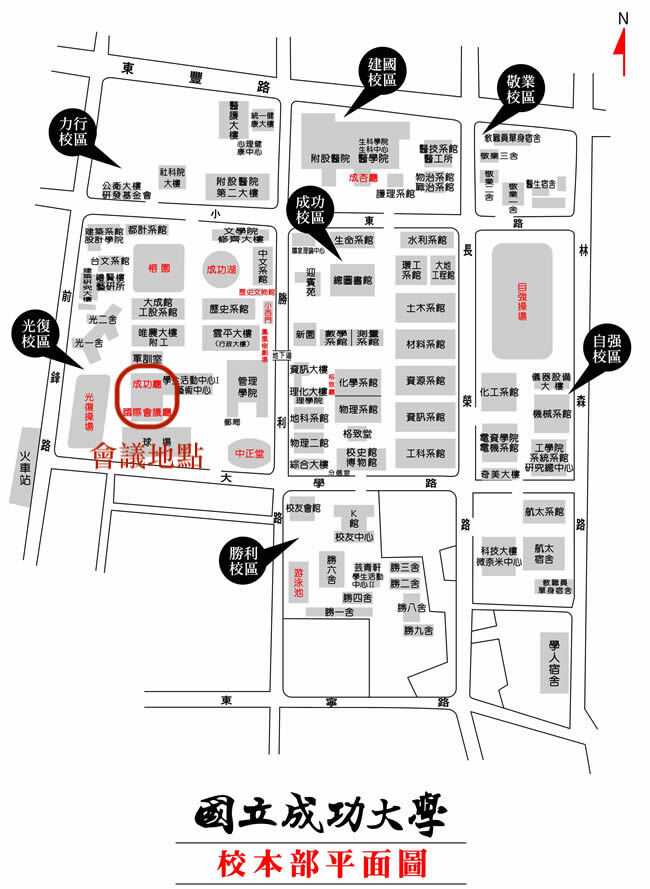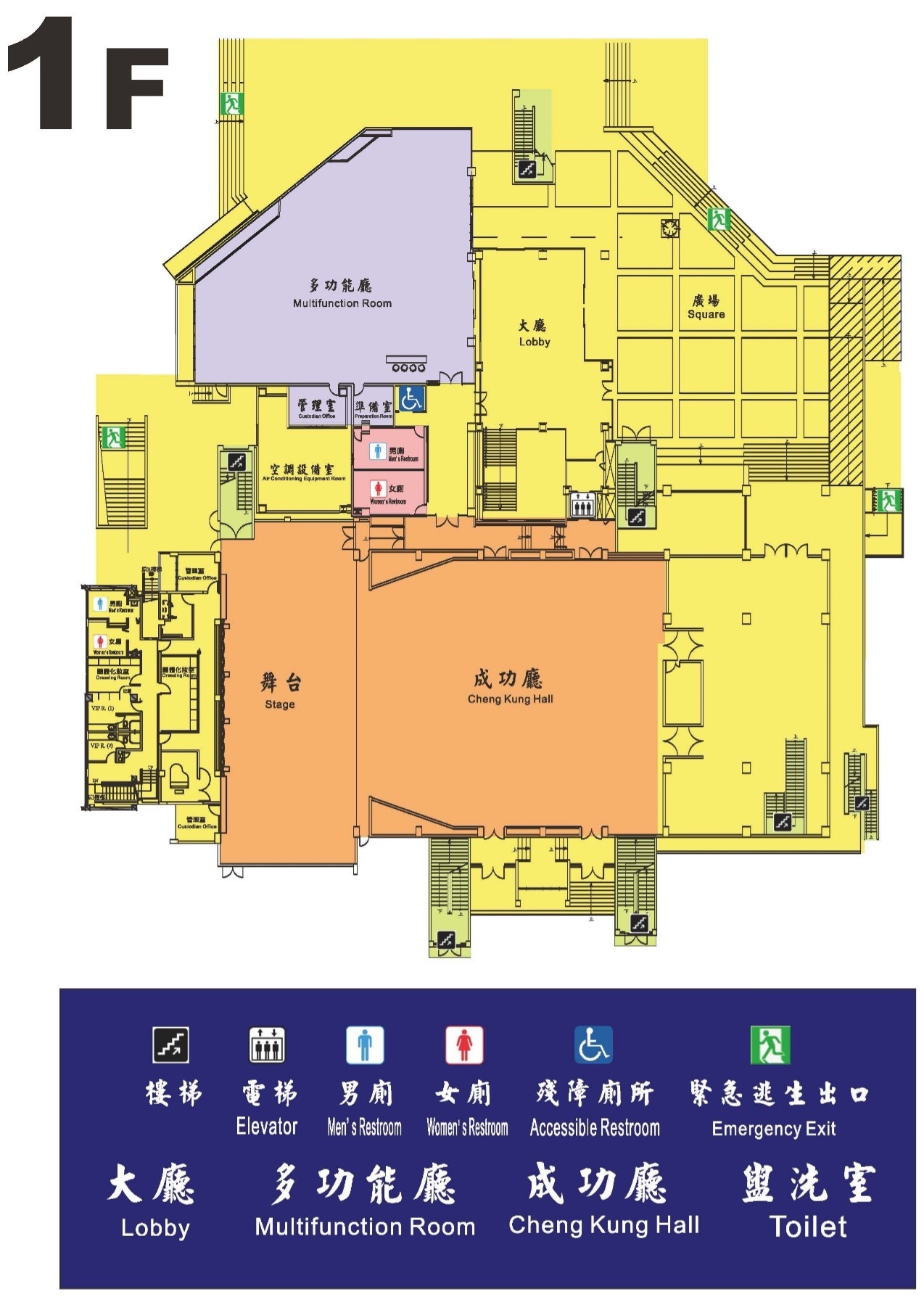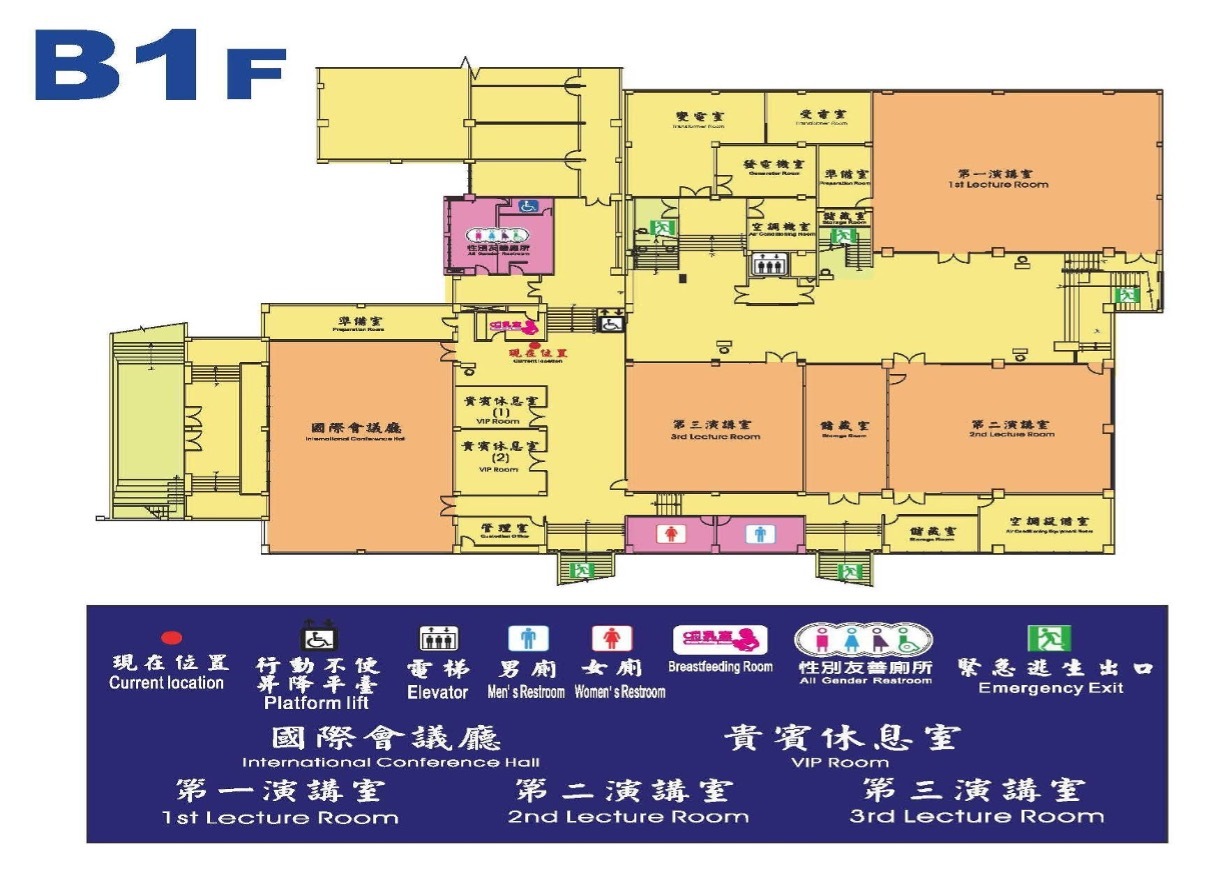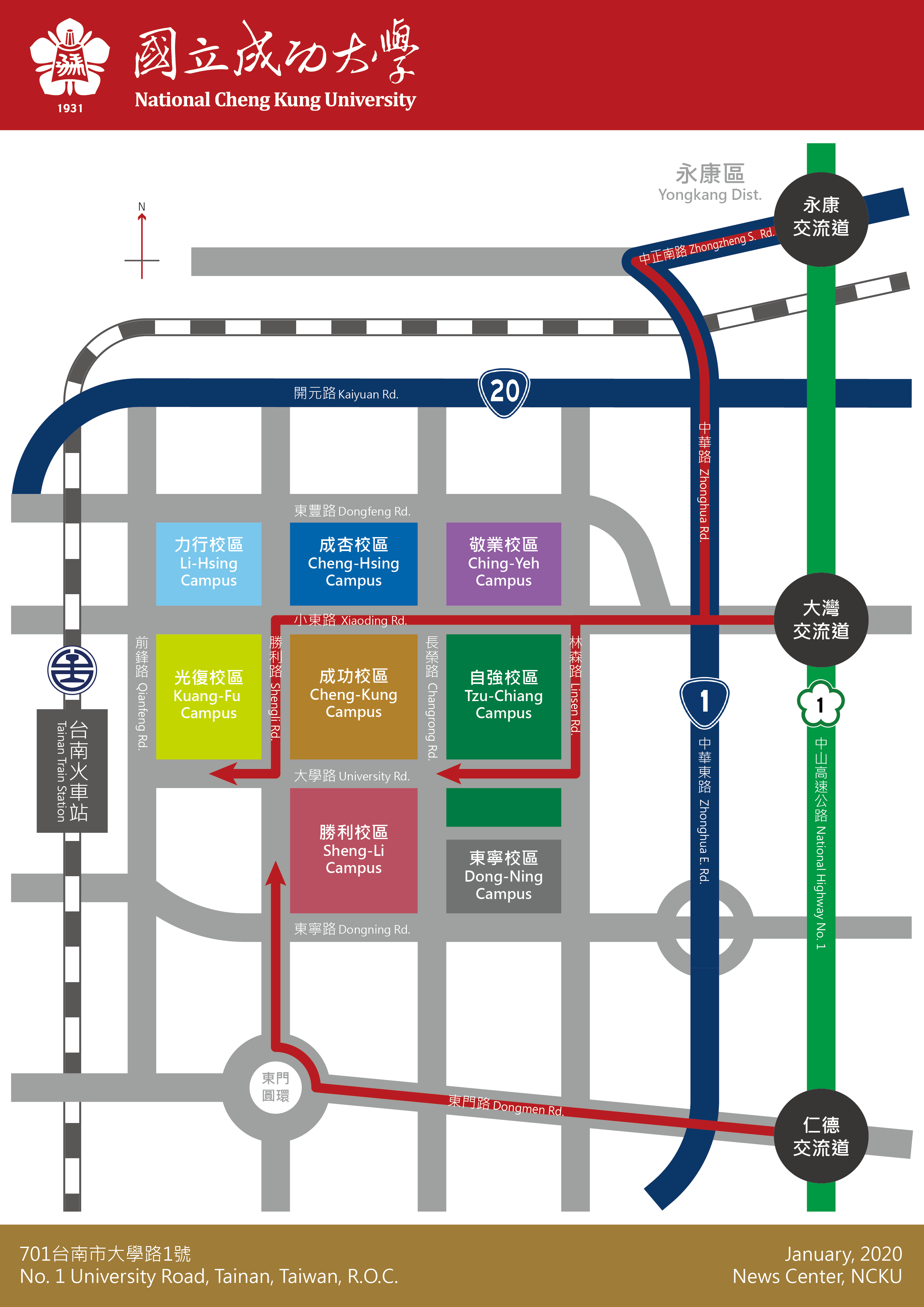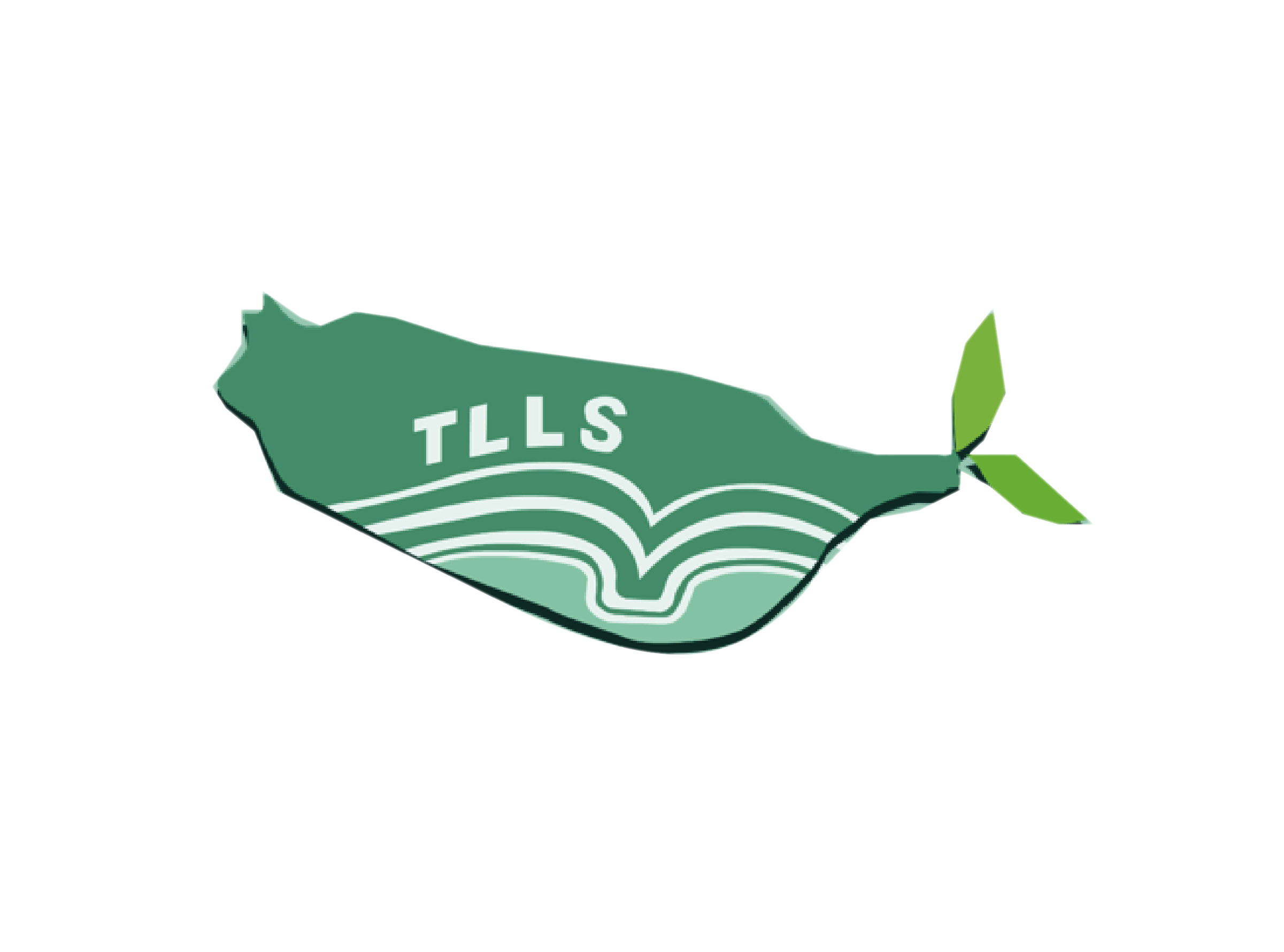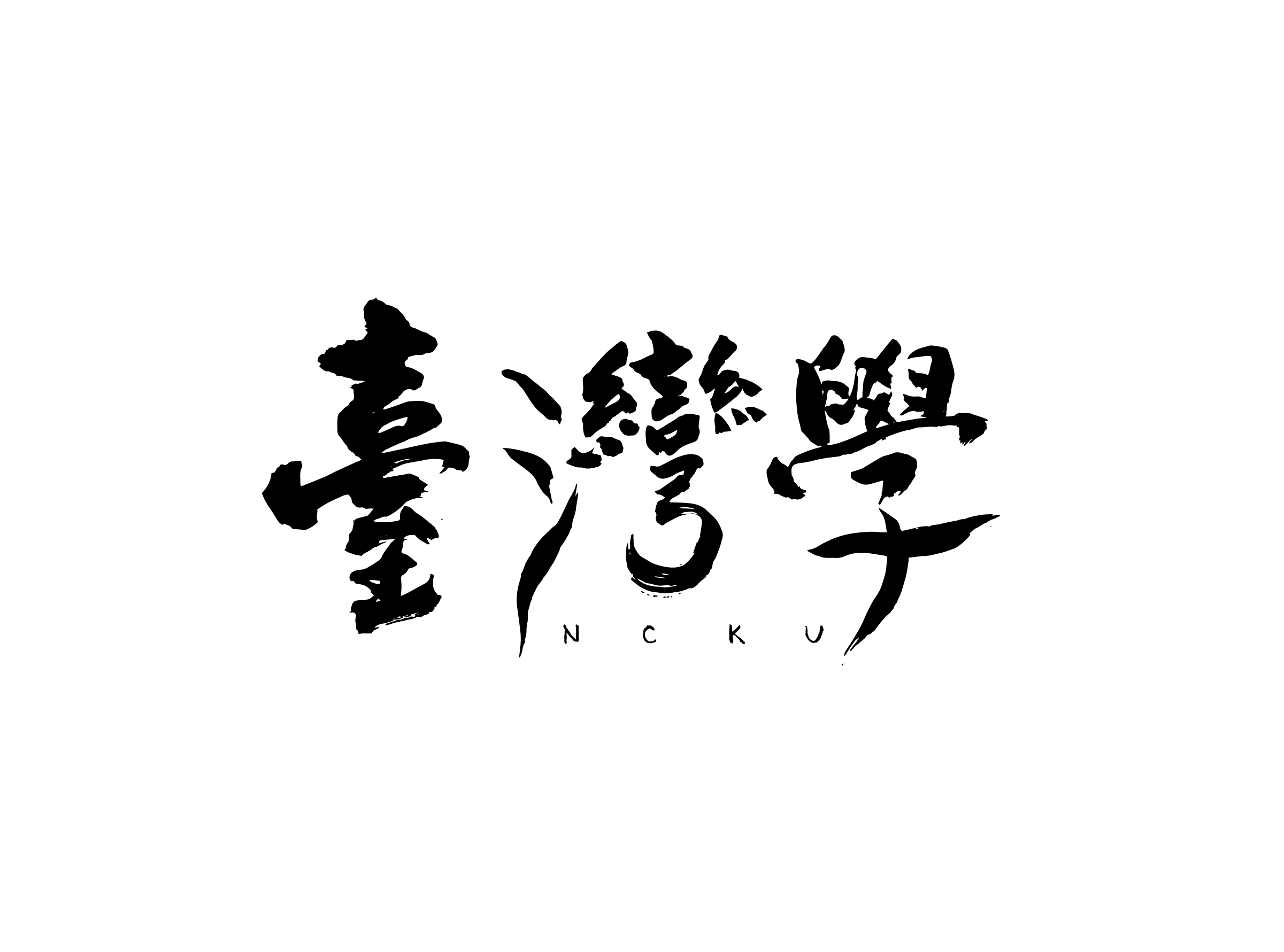第十四屆台灣語言及其教學暨台灣學「蛻變的聲音」國際學術研討會/多聲道的台灣共同體
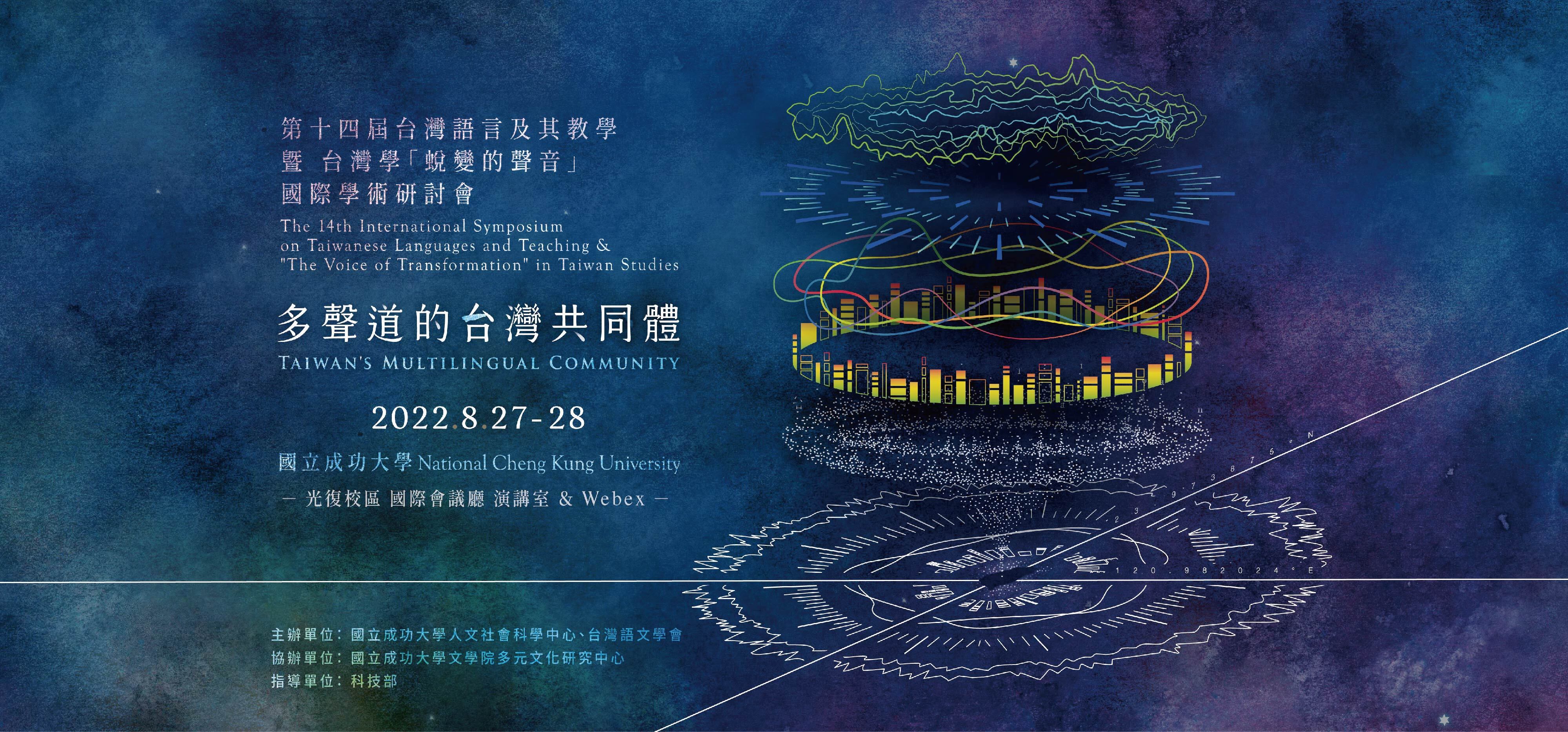
【會議主旨/Objective】
本會議由國立成功大學人文社會科學中心 kap 台灣語文學會聯合主辦,以「多聲道 ê 台灣共同體」做主題。聲音可比語言,無仝語言 ê 變體就有無仝 ê 族群、性別、年代、社會階層、國家,逐个話語主體攏有家己 ê 主體性,佇語言接續中不斷變化。聲音佇社會意涵──逐款聲音攏是特別 koh 無法度仿 ê,必須透過聽、交談、聲嗽嚇頭,探討台灣多元聲音 ê 創作 kah 主體性。Ùi 結構語言學、社會語言學、語用學、認知語言學、教育心理學等 khòa 領域 ê 方法,深探台灣各種多元語言存在 ê 聲音。向望共同創造各語言文化意涵 ê 對話平台,同齊創建多語言延續共生 ê 共同體。
With the theme of “Taiwan's Multilingual Community,” the conference is co-hosted by NCKU Research Center for Humanities and Social Sciences (CHASS) and Taiwan Languages & Literature Society. Since sound implies languages which are transformed from different groups, gender, generations, social hierarchy and borders, each speaking subject has his/her own agency and will transform through language contacts. Through social implications— unique and inimitable, voice-listening and penetrating, multi-voiced interchange and negotiation, the management of language and struggle with subjectivity of voice, this conference aims to explore the creativity and subjectivity of Taiwan’s multilingualism. By structural linguistics, sociolinguistics, pragmatics, cognitive linguistics and educational psychology and transdisciplinary methodology, this conference will also explore Taiwan’s multiple voices and will look forward to building a conversational platform of cultural implications to create the sustainable development of multi-language community.
本次會議由國立成功大學人文社會科學中心與台灣語文學會聯合主辦,會議的主題是「多聲道的台灣共同體」。聲音隱喻語言,不同的語言變體來自不同的族群、性別、年代、社會階層、邦界,每個話語主體皆具有自己的能動性,並在語言接觸中,不斷的變化。從聲音的社會寓意──所有聲音的獨特無可仿、聲音的穿透與聆聽、多聲的交雜和協商、聲響與話語的治理及主權爭奪等,探索台灣多元話語聲音的創造性與主體性。從結構語言學、社會語言學、語用學、認知語言學、教育心理學等各領域出發乃至於跨領域的方法,探究台灣各種語言多元存在的聲音。期能共創各種語言所代表的文化寓意之對話平台,共同思考並創造多語言共同體今後的永續共生。
【會議資訊/Conference information】
日期:2022 年 8 月 27、28 日(週六-週日)
地點:國立成功大學國際會議廳演講室(臺南市大學路1號光復校區)
主辦單位:國立成功大學人文社會科學中心、台灣語文學會
協辦單位:國立成功大學文學院多元文化研究中心
指導單位:國家科學及技術委員會、客家委員會
會議主題:多聲道的台灣共同體
Date: August 27-28, 2022 (Saturday-Sunday)
Venue: NCKU International Conference Room(Kuang-Fu Campus, No.1, Daxue Road, Tainan City)
Organizers: NCKU Research Center for Humanities and Social Sciences, Taiwan Languages and Literature Society
Supported by NCKU Center for Multi-cultural Studies
Directed by Ministry of Science and Technology & Hakke Affairs Council
Conference Theme: Taiwan’s Multilingual Community
會議子題:
① 台灣多元語言的發展與共好。
② 台灣語言的復振及相關語言政策。
③ 台灣語言語音與音韻結構分析。
④ 台灣語言構詞及句法的理論探討。
⑤ 台灣語言的書寫、應用與教學。
⑥ 語言景觀研究與教學。
⑦ 以台灣語言為主題的台灣文化、文學或其教學相關之議題。
⑧ 以台灣語言為主題的科技、醫療等跨領域研究。
Conference Topics:
1. Development and Mutual Prosperity of Taiwan's Multilingual Community
2. Language Revitalizations and Policies in Taiwan
3. Analysis on Phonetical and Phonological Structures of Taiwanese Languages
4. Morphological and Syntactical Theories of Taiwanese Languages
5. Writing, Practicing and Teaching of Taiwanese Languages
6. Studies and Teaching of Linguistic Landscape
7. Taiwanese Languages: Culture, Literature and Teaching
8. Taiwanese Languages: Technology, Medical Care and Interdisciplinary Studies
【主協辦單位/Organizers & Co-organizers】
| 備註:姓名後標記「★」者為線上參與 Note: Names followed with “★” indicates online participation |
|||
| 第一天:2022年8月27日(週六) Day 1:August 27th, 2022 (Saturday) |
|||
| 時間 Time |
活動內容 Event |
||
| 08:30~09:00 | 報到 Registration |
||
| 09:00~09:20 | 開幕式 Opening |
||
| 09:20~10:20 | Keynote Speech I: Mary Hermes★ “Anishinaabe people reclaiming language and land” 主持人:葉美利 Moderator: Mei-Li Yeh |
||
| 10:20~10:30 | 休息 Break |
||
| 10:30~12:15 | 第一場次發表 Session I |
||
| A1 台灣歌謠的多聲道共鳴 |
A2 台灣語言智慧科技應用 |
A3 多面向評估客語語言活力 |
|
| 主持人:呂興昌 Moderator: Sing-Chang Lyu |
主持人:謝舒凱 Moderator: Shu-Kai Hsieh |
主持人:鍾鎮城 Moderator: Chen-Cheng Chun |
|
| 初探周添旺、葉俊麟之台語歌詞的語言風格 發表人:杜佳倫 Presenter: Chia-Lun Tu |
台華客多語語音辨識周全性老年評估輔助App之開發 發表人:盧文祥、邱偉欣、李沅翰 Presenters: Wen-Hsiang Lu, Uí-him Khu, Yuan-Han Li |
從客語世代傳承等級評估客語活力 發表人:張學謙 Presenter: Hak-Khiam Tiun |
|
| 梁松林編著歌仔冊出韻的討論 發表人:施炳華 Presenter: Bing-Hua Si |
台語高齡關懷機器人與健樂促進整合服務平台設計與開發 發表人:盧文祥、李沅翰、楊中平★、梁勝富 Presenter: Wen-Hsiang Lu, Yuan-Han Li, Chung-Ping Young★, Sheng-Fu Liang |
客家年輕世代的語言活力與傳承 發表人:楊真宜 Presenter: Chen-Yi Yang |
|
| 翻唱新詞,多聲記憶——探析臺語流行歌同一旋律下之相反相生歌曲 發表人:羅景文★ Presenter: Ching-Wen Lo★ |
台語華語語法語意規則建立對華語母語者之台語學習網站開發 發表人:李沅翰、邱偉欣、盧文祥 Presenters: Yuan-Han Li, Uí-Him Khu, Wen-Hsiang Lu, |
在客語媒體新場域之使用評估臺灣客語活力力 發表人:劉彩秀 Presenter: Tsai-Hsiu Liu |
|
| 流行歌鄉土心——「臺灣鄉土流行歌」裡的社會心聲 發表人:黃裕元 Presenter: Yu-Yuan Huang |
臺語語音合成於語言教育與文字朗讀之數位應用 發表人:楊中平★、盧文祥 Presenter: Chung-Ping Young★, Wen-Hsiang Lu |
從語言社群成員的語言態度評估臺灣客語活力 發表人:蘇凰蘭 Presenter: Huang-Lan Su |
|
| 西拉雅語言數位復育及線上教育之教學實踐 發表人:楊中平★、盧文祥 Presenters: Chung-Ping Young★, Wen-Hsiang Lu |
|||
| 12:15~14:00 | 午餐(會員大會) Lunch (Plenary Session) |
||
| 14:00~15:20 | 第二場次發表 Session II |
||
| B1場次 | B2場次 | B3場次 | |
| 主持人:施炳華 Moderator: Bing-Hua Si |
主持人:洪惟仁 Moderator: Uî-Jîn Âng |
主持人:賴惠玲 Moderator: Huei-ling Lai |
|
| 歌 á 先周定邦 án-nóa 用台語人 ê 話語來 kóe-soeh 228──The̍ h《桂花怨》chham《BOK 血 Ê 孔嘴》來討論 發表人:丁鳳珍 Presenter: Hōng-Tin Teng 評論人:施炳華 Discussant: Bing-Hua Si |
台灣北、中、南公共地區的語言轉移-傳統市場及百貨公司的調查分析 發表人:陳淑娟 Presenter: Su-Chuan Chen 評論人:葉高華 Discussant: Ko-Hua Yap |
閩南區方言中原始閩語**yk 和**yok 的表現 發表人:秋谷裕幸★ Presenter: AKITANI Hiroyuki★ 評論人:吳瑞文★ Discussant: Rui-Wen Wu★ |
|
| 台語說唱藝術「笑詼」表現形式 kap 機制 發表人:陳麗君 Presenter: Le-Kun Tan 評論人:陳龍廷 Discussant: Long-Ting Chen |
教育為台語家庭族語傳承之雙面刃 發表人:蔡美慧 Presenter: Mei-Hui Tsai 評論人:張學謙 Discussant: Hak-Khiam Tiun |
探究客語「識 sɨt4」之語法化 發表人:羅曼 Presenter: Man Luo 評論人:賴惠玲 Discussant: Huei-Ling Lai |
|
| 論《全本潮汕方言歌謠評注》的「掠(liaʔ8)」、「合(kaʔ7)」與「共(kaŋ6)」——兼與臺灣閩南語、明本閩南語戲文相比較 發表人:范里 Presenter: Li Fan 評論人:杜佳倫 Discussant: Chia-Lun Tu |
「ûn」tī 佗位?咱人話 kah 台語的語境探討 發表人:蔡惠名 Presenter: Hui-Ming Tsai 評論人:連金發 Discussant: Chin-Fa Lien |
新竹地區青年層海陸客語在語言接觸下的音變現象 發表人:曾櫳震 Presenter: Long-Zhen Tseng 評論人:鄭曉峯 Discussant: Hsiao-Feng Cheng |
|
| 15:20~15:40 | 休息 Break |
||
| 15:40~17:25 | 第三場次發表 Session III |
||
| C1場次 | C2場次 | C3場次 | |
| 主持人:連金發 Moderator: Chin-Fa Lien |
主持人:陳淑娟 Moderator: Su-Chuan Chen |
主持人:王旭 Moderator: H. Samuel Wang |
|
| 漢語方言中味覺詞「苦」的語意研究 發表人:王本瑛 Presenter: Pen-Ying Wang 評論人:洪嘉馡 Discussant: Jia-Fei Hong |
《臺日新辭書》的臺語假名表記與特色 發表人:王榮正 Presenter: Rong-Zheng Wang 評論人:張屏生 Discussant: Ping-Sheng Zhang |
Results of brief introductory course on Taiwanese for non-native speakers and fostering skills for continu ed self-study 發表人:史皓元★ Presenter: Richard Van Ness SIMMONS★ 評論人:李勤岸★ Discussant: Chin-An Li★ |
|
| 台灣閩南語「喙」、「口」的詞彙語意研究 發表人:柯仰庭 Presenter: Yang-Ting Ko 評論人:陳彥君 Discussant: Gānkun Tân |
關于明治時期的東亞漢字音對比研究的檢查和證實 發表人:中澤信幸★ Presenter: Nobuyuki NAKAZAWA★ 評論人:洪惟仁 Discussant: Uî-Jîn Âng |
初探台灣華語的「變」與「不變」:基於語料庫的語音研究 發表人:周一銘、白明弘、林慶隆 Presenter: Yi-Ming Chou, Ming-Hong Bai, Ching-Lung Lin 評論人:蔡美智★ Discussant: Mei-Chih Tsai★ |
|
| 臺灣閩南語摘取的手部動詞「挽」和「捻」之研究 發表人:陳利如 Presenter: Li-Ru Chen 評論人:黃漢君 Discussant: Han-Chun Huang |
臺灣安溪腔的語音現象 ‒ 以三峽、石碇為例 發表人:張屏生 Presenter: Ping-Sheng Chang 評論人:陳淑娟 Discussant: Su-Chuan Chen |
||
| 閩南語地名的身體部位隱喻之體現──以新竹市為例 發表人:葉欣 Presenter: Shin Yeh 評論人:張榮興 Discussant: Jung-Hsing Chang |
|||
| 17:25~ | 結束 End of Day 1 |
||
| 第二天:2022年8月28日(週日) Day 2:August 28, 2022 (Sunday) |
|||
| 時間 Time |
活動內容 Event |
||
| 08:20~08:50 | 報到 Registration |
||
| 08:50~10:20 | 圓桌會議-台灣的語言政策:何去何從? 主持人:江文瑜★、何萬順 參與講者:江文瑜★、何萬順、張學謙、蕭素英、陳麗君 Moderators: Wen-Yu Chiang★, One-Soon Her Speakers: Wen-Yu Chiang★, One-Soon Her, Hak-Khiam Tiun, Su-Ying Hsiao, Le-Kun Tan |
||
| 10:20~10:30 | 休息 Break |
||
| 10:30~12:15 | 第四場次發表 Session IV |
||
| D1場次 | D2場次 | D3場次 | |
| 主持人:許長謨 Moderator: Chang-Mo Hsu |
主持人:何德華★ Moderator: D. Victoria Rau★ |
主持人:江敏華 Moderator: Min-Hua Chiang |
|
| 台灣閩南語存放類動靜態句式探討 發表人:連金發 Presenter: Chin-Fa Lien 評論人:許長謨 Discussant: Chang-Mo Hsu |
「肩負」動詞在中部排灣語的語義 發表人:林怡誼 Presenter: Yi-Yi Lin 評論人:謝富惠 Discussant: Fu-Hui Hsieh |
論客家方言的一個特徵詞*iau (陽上) 發表人:鄭曉峯 Presenter: Hsiao-Feng Cheng 評論人:吳中杰★ Discussant: Chong-Chieh Wu★ |
|
| 「研究假--ê」vs.「假 ê 研究」 發表人:劉承賢 Presenter: Sêng-Hiân Lâu 評論人:李惠琦 Discussant: Hui-Chi Lee |
鄒族特富野部落傳統地名的命名現象分析 發表人:陳冠媖 Presenter: Guan-Ying Chen 評論人:張永利 Discussant: Ying-Li Chang |
由辭書學及語義學角度比較臺灣閩南語及客家語辭典—以單音動詞為範疇 發表人:邱湘雲 Presenter: Hsiang-Yun Chiu 評論人:駱嘉鵬 Discussant: Jia-Peng Luo |
|
| 臺灣閩南語副詞子句的語法面向 發表人:魏廷冀 Presenter: Ting-Chi Wei 評論人:郭維茹★ Discussant: Wei-Ju Kuo★ |
巴宰噶哈巫語親屬稱謂之特點 發表人:林鴻瑞 Presenter: Hong-Sui Lim 評論人:李佩容 Discussant: Pei-Jung Lee |
「客家米食」主題式之客家語文教學的課程設計及應用 發表人:劉嘉雯★、鄭縈★ Presenters: Chia-Wen Liu★, Ying Cheng★ 評論人:賴文英 Discussant: Wen-Ying Lai |
|
| 試探客語難字缺字、一字多碼與異體字議題:以臺灣客語語料庫為例 發表人:葉秋杏、賴惠玲 Presenter: Chiou-Shing Yeh, Huei-Ling Lai 評論人:葉瑞娟 Discussant: Jui-Chuan Yeh |
|||
| 12:15-13:30 | 午餐 Lunch |
||
| 13:30~15:15 | 第五場次發表 | ||
| E1場次 | E2場次 | - | |
| 主持人:蘇凰蘭 Moderator: Huang-Lan Su |
主持人:陳麗君 Moderator: Le-Kun Tan |
||
| 閩客粵語字音字形練習軟體的設計與應用 發表人:駱嘉鵬 Presenter: Jia-Peng Luo 評論人:廖元甫 Discussant: Yuan-Fu Liao |
台灣 1~9 年級台語識字測驗之開發研究 發表人:邱偉欣、陳建瑋、韓瑞容、李迎采、鄭順林、林佳瑩、陳麗君 Presenters: Uí-him Khu, Jian-Wei Chen, Sui-Iong Han, Ying-Tsai Li, Shuen-Lin Jeng, Jia-Ying Lin, Le-Kun Tan 評論人:洪儷瑜 Discussant: Li-Yu Hung |
||
| 海洋「suh」咱 ê 厝 —澎湖縣海洋教育議題佇國小台語教材設計 發表人:張思萍、梁淑慧 Presenter: Suu-Ping Chang, Siok-Hūi Niû 評論人:張惠貞 Discussant: Hui-Chen Chang |
獨特溝通的語言-以內門地區秘密語為例 發表人:王志仁 Presenter: Chih-Jen Wang 評論人:蔡美慧 Discussant: Mei-Hui Tsai |
||
| 鬥陣來𨑨迌—國小五年級台語素養導向教案設計 發表人:許芷榛、梁淑慧 Presenter: Chih-Chen Hsu, Siok-Hūi Niû 評論人:程俊源★ Discussant: Tsùn-Guân Thiânn★ |
台語黑話之研究-以台灣監獄看守所為例 發表人:陳宜正 Presenter: Yi-Cheng Chen 評論人:魏美瑤★ Discussant: Meei-Yau Wei★ |
||
| 《楊梅三部曲》大河小說語言風格研究 發表人:黃正靜 Presenter: Jheng-Jing Huang 評論人:黃菊芳 Discussant: Chu-Fang Huang |
|||
| 15:15~15:30 | 休息 Break |
||
| 15:30~16:30 | Keynote Speech II: Karl Alexander Sander Adelaar★ "The history and revitalisation of Siraya" 主持人:齊莉莎 Moderator: Elizabeth Zeitoun |
||
| 16:30~17:00 | 閉幕式 Closing |
||
| 簡介 | |
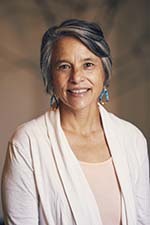 |
1. Prof. Mary Hermes, University of Minnesota Community engagement, cultural studies, curriculum development, diversity and equity, Indigenous language revitalization, social justice. Speech Abstract “Anishinaabe people reclaiming language and land” What does it mean to indigenous language reclamation that language are deeply tied to specific places? Specifically, in the context of the Anishinaabe, or Ojibwe (woodland people surrounding the Great Lakes in the United States and Canada) how does engaging deeply with land, especially in terms of strengthening relationships with more-than-human beings, intersect with the act of language reclamation? Indigenous language reclamation efforts are pushing academic ideas of what language is to be accountable to Indigenous epistemologies. Simultaneously, as our Indigenous languages grow, we (indigenous academics) are pushed to grow beyond the boundaries of disciplines. Categories of “language” and “land” have been segregated by this colonial structure. In this presentation, research examples from an NSF/DEL documentation project1, called “Understanding Learning Mechanisms and Language Acquisition through Intergenerational Conversations in Southwestern Ojibwe, a Native American language,” or affectionately known to us as “Forest Walks.” In order to think through what it means to “read the land.” A team of interdisciplinary indigenous and white collaborators (Ojibwe language, applied linguistics and learning sciences) worked together to describe the micro interactions that arise from youth and Elders walking on rural and reservation forest land, using the Ojibwe language exclusively. Due to the strength of the Ojibwe language revitalization movement, there are now youth who are highly proficient as bilinguals or second language learners, constituting a unique moment in time where First speakers of the language and youth can interact. We are interested in how humans and more-than-humans all play a role in the conversations that build relationships on these walks. Selected publications
|
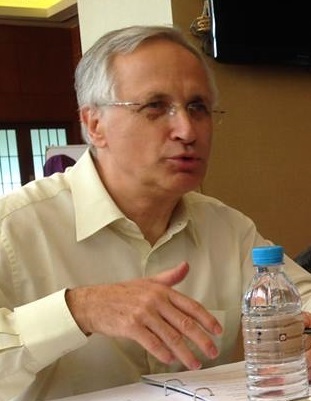 |
Prof. Karl Alexander Sander Adelaar His research includes comparative and descriptive linguistics with emphasis on varieties of Malay and the languages of Borneo (where he has conducted extensive field research), Madagascar and Taiwan. He is also interested in the oral and written literary traditions of Indonesia.
Speech Abstract “The history and revitalisation of Siraya” Siraya is a Formosan language which used to be spoken in Southwest Taiwan and became dormant in the second part of the 19th century. This paper gives a short overview of its history from the 17th century onwards. It also discusses efforts to revitalise Siraya that have been made by several language activists and scholars in the last thirty years, both in terms of language description (producing grammars and dictionaries, also teaching materials), the rediscovery of lost and forgotten texts, the recreation of a speech community, and the implementation of the language in teaching programmes at primary and secondary schools. Finally, it details some of the problems faced by language activists in their efforts to obtain status and recognition for the language. Selected publications
|
【會議地點/Venue】
國立成功大學光復校區國際會議廳第1、2、3演講室
【交通資訊/Transportation】
🚗自行開車(國道路線)
南下:沿國道一號南下 →下大灣交流道右轉 → 沿小東路直走即可抵達本校。
【自國道三號南下者,轉國道8號(西向),可接國道一號(南向)】
北上:沿國道一號北上 → 下仁德交流道左轉 → 沿東門路(西向)往台南市區直走 → 遇林森路或長榮路右轉(北向),即可抵達本校。
【自國道三號北上者,轉86號快速道路(西向),可接國道一號(北向)】
🚂搭乘臺鐵
於台南站下車後,自後站出口(大學路),大學路左側即為本校光復校區。
※臺鐵時刻表查詢
🚅搭乘高鐵
搭乘台灣高鐵抵台南站者,可至高鐵台南站二樓轉乘通廊或一樓大廳1號出口前往台鐵沙崙站搭乘
台鐵區間車前往台南火車站,約30分鐘一班車,20分鐘可到達台南火車站;成功大學自台南火車站後站步行即可到達。
※高鐵時刻表查詢
【聯絡資訊/Contact Information】
聯絡人:助理 郭先生
聯絡單位:國立成功大學 台灣文學系
聯絡地址:701 台南市大學路 1 號
電子郵件:istlt2021@gmail.com
電話:0966-530-131
Mr. Kuo
Department of Taiwanese Literature, National Cheng Kung University
Address: No.1, University Road, Tainan City 701, Taiwan
E-mail: istlt2021@gmail.com
Phone: +886-966-530-131
